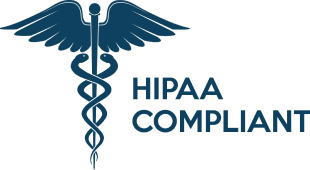Diversity and Innovation: The Key to Transforming Clinical Trial Recruitment Strategies
Clinical trials are the backbone of medical advancements, yet recruitment processes have remained largely stagnant for over two decades. For pharmaceutical leaders, reimagining clinical trial recruitment is not just an operational necessity but a moral imperative, as the lack of diversity in trials perpetuates health disparities and limits the generalizability of results.
To improve clinical trial recruitment strategies, the pharmaceutical industry must embrace innovative technologies and cultural strategies that prioritize efficiency and inclusion. Read on to discover an innovative solution that sites, sponsors, and CROs can use to enhance recruitment.
The Stagnation in Clinical Trial Recruitment
A Process Stuck in the Past
Clinical trial recruitment has historically resisted innovation due to fears of risk and complexity. Unfortunately, this resistance comes at a significant cost. Today, only 5-6% of individuals who begin the recruitment process end up being randomized into trials. This low conversion rate is a result of inefficiencies at every stage of the recruitment funnel:
Pre-Screening Failures: Many participants referred to trial sites do not meet eligibility criteria, wasting valuable time and resources. ⅔ of these criteria can be identified at prescreening but they’re harder to tackle when looking at a vendor doing self-reported questionnaires of patients.
Communication Breakdowns: About 70% of patients referred are not contacted by sites. Often because they don’t have access to medical records or they are not known patients, sites fail to follow up with potential participants, leading to disinterest or mistrust.
Scheduling Delays: Long wait times between initial contact and trial enrollment deter many participants.
Starting with around 1,000 potential participants, these inefficiencies result in only about six individuals completing the process. Screen failures cost sponsors an estimate of $1,200 per failed enrollment, while poor communication and prolonged timelines waste resources and miss opportunities to engage participants.
By adopting advanced recruitment strategies, like those leveraging data-driven tools, sponsors can minimize these failures, reduce costs, and create more efficient, patient-centered recruitment processes.
Diversity Challenges in Clinical Trials
Another major challenge in clinical recruitment is recruiting participants from diverse populations to ensure treatments are effective for all populations. Not only is prioritizing inclusion an ethical obligation, it is also a practical strategy for improving clinical trial recruitment. In fact, contrary to the belief that diverse trials take longer to enroll, studies show that better representation can actually shorten recruitment timelines. Yet, underrepresentation remains pervasive, with the data showing that:
Hispanics are 32.1% underrepresented
Asians are 31.9% underrepresented
Blacks are 64% underrepresented
This data indicates a significant gap in the inclusion of diverse populations in clinical trials, which perpetuates health disparities and compromises the generalizability of trial results.
Transforming Clinical Trial Recruitment with Non-Invasive Health Monitoring
Binah.ai’s video-based health monitoring technology offers a groundbreaking solution to optimize clinical trial recruitment, especially at the top of the funnel. Here’s how it works and why it’s a game-changer.
With Binah.ai’s solution, initial health screenings are as simple as taking a selfie video.
Using a smartphone, tablet, or even a kiosk, participants can complete a quick health check by simply taking a 35-40-second selfie video. The technology enables participants to measure chronic disease risks such as hypertension and diabetes, stress levels, and vital health indicators, such as blood pressure, heart rate, oxygen saturation, HbA1c, and more— providing immediate insights without the need for labs or specialized devices. Remote access allows patients to perform scans from the comfort of their homes, enabling access to a larger pool of participants and removing logistical barriers like travel.
The technology can be deployed in multiple ways:
- As a link shared via an email or text message.
- Integrated into apps for seamless user experience.
- At health kiosks in community centers or clinics.
Reduce Screen Failure Rates
By screening for eligibility criteria early using a data-driven approach, sponsors can significantly reduce the number of ineligible participants advancing to later stages. Ensuring these candidates are ruled out early on helps:
- Lower screen failure rates.
- Save time and resources for both sponsors and participants.
Minimize Scheduling Delays
Eliminating the need for participants to show up to sites for initial screenings, offering contactless remote checks removes the logistical barriers that contribute to scheduling delays, communication breakdowns, and higher attrition rates.
Enhance Inclusion
This approach levels the playing field, as everyone, regardless of race or ethnicity, has access to a smartphone. Moreover, Binah.ai’s technology supports all Fitzpatrick-scale skin tones, ensuring that everyone over the age of 18 can enjoy the ease and convenience of its technology. Coupled with cultural competency training, this technology can transform access to diverse patient populations.
Create Lasting Loyalty
Sponsors can use Binah.ai’s technology to offer free health checks and notify patients about important health risks like diabetes or hypertension. This can generate trust and engage both potential and active participants while gathering meaningful data for future outreach.
The Bigger Picture: Reimagining Clinical Trial Recruitment Strategies
The path forward requires a commitment to innovation and inclusion. Diverse and inclusive trials ensure medical treatments are safe and effective for all demographics. Reducing screen failures and improving efficiency saves time and resources while enhancing trial outcomes.
Pharma leaders must embrace new technologies and strategies to overcome longstanding challenges. Binah.ai’s solutions exemplify the power of technology to transform this critical aspect of clinical research.
Optimize Your Clinical Trial Recruitment Today
This blog post is based on our recent webinar featuring industry experts Beth Harper, BSOT, MBA, Otis Johnson, PhD, MPA, Len Rosenberg, PhD, RPh, and David Maman.
Ready to transform your recruitment strategies? Watch the full webinar here or schedule a demo today to see how Binah.ai can help streamline and optimize your clinical trial recruitment process.

 close
close





